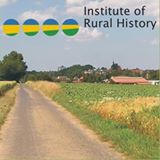RHN 117/2013 | Call
Co-editors: Rita Garstenauer and Anne Unterwurzacher (both Zentrum für Migrationsforschung / Institute of Rural History, St. Pölten).
Jahrbuch für Geschichte des ländlichen Raumes (JGLR) vol. 2014
Deadline: 31 October 2013
Rural Migration and Mobility in Post-World War II Central Europe
In the social sciences, migration and mobility are frequently considered to be urban matters. Rural areas are at best framed as out-migration regions, from where parts of the settled inhabitants migrate to the urban centres once and for all. Meanwhile, the more complex phenomena of rural migration and mobility get out of view: rural to urban as well as urban to rural; migration from one rural area to the other in all varieties of temporal patterns – permanent, circular, life-cycle migration, long-distance commuting and so forth. Historical migration studies have a better understanding of the complexities of rural migration, however, for the post World War II period, there are many desiderata.
The emblematic migration phenomenon of the period is the migration of guest-workers, in the case of Austria from Turkey and Yugoslavia, who joined bi-national recruitment programmes from the 1960s onwards. Intended as a temporary migration scheme, these programmes brought about a broad variety of temporal migration patterns – permanent, family migration, circular migration, even transnational living arrangements. The subject has been covered in the social sciences; however, there is scarcely any historical research on the topic yet. Other subjects are the guest-worker migration from countries like Austria (or Germany) to other countries as well as the permanent transatlantic migration. Furthermore, migration phenomena in the aftermath of the Nazi Regime and World War II like the mobility of displaced persons, or the return migration from exile, call for systematic research, as well as the refugee migration during cold war and the further development of global refugee migration. All these phenomena have relevance for rural areas. As of yet, they have not been made subject of an historical discourse that is able to frame migration as a complex of preconditions and events with lasting effects and consequences, in stead of treating migration as a problem of the present that can be done away with by short term solutions.
With this volume, we try to make a step in this direction. We call for contributions focusing on rural migration post 1945 from history and neighbour disciplines (sociology, anthropology, geography, etc.). The spatial reference of this volume is Austria and its Central European neighbour countries (and the connected migratory spaces worldwide). The temporal reference is the period from 1945; diachronic contributions comprising subjects that involve earlier periods are equally welcome, if the focal point of the article is post 1945.
Possible Key Questions:
- Rural-Urban: What are the specific conditions of rural areas for migration? How can the dominance of urban contexts for the perception and imagination of migration phenomena be avoided?
- Structural Integration / Identities: How do processes of inclusion and exclusion of migrants take place in rural social contexts?
- Voluntary or Forced: How can we describe migration phenomena along a gradient of the pursuit of opportunities via the avoidance of disadvantage to direct impact of force and violence?
- Rural-Urban-Migration, Counter-Urbanisation, Amenity Migration: How do technological developments (individual transport, telecommunication) influence the movement from urban to rural areas? What is the role of the life cycle for migratory decisions in this direction? What cultural, political or economic motives inspire people to leave the towns for the countryside?
- Focus on Rural Depopulation: What is the impact of out-migration on the sending regions? What are the conditions for the stayers? Which motives inspire the decision to stay in or to leave a remote rural area?
- Long-term Consequences of Forced Migration: What are the effects of deportations, expropriations, and (re-)settlement in rural societies? What are the specific conditions of rural areas for return migration from exile, for restitution and resettlement?
- Accommodation of tolerated aliens: What impact has the state-controlled accommodation of displaced persons and refugees on rural societies?
- Migration in History and Memory: Is there a perception of migration post 1945 as a historical phenomenon, in contrast to private and individual memory? Which phenomena are subject to collective/public commemoration, which are limited to private recollection?
The article should be limited to 40.000 characters (incl. blanks and footnotes). The preferred language is German. However, contributions that are particularly pertinent but cannot be submitted in German will exceptionally be accepted in English. In addition, an abstract of max. 1500 characters in English (resp. German) is required.
We ask for submission of proposals at the length of one page (ca. 1800 characters incl. blanks) by 31st October 2013 via email to anne.unterwurzacher@migrationsforschung.at and rita.garstenauer@migrationsforschung.at .
Schedule:
Deadline call for articles: 31st October 2013
Deadline manuscripts: 31. Mai 2014
Date of publication: October 2014
